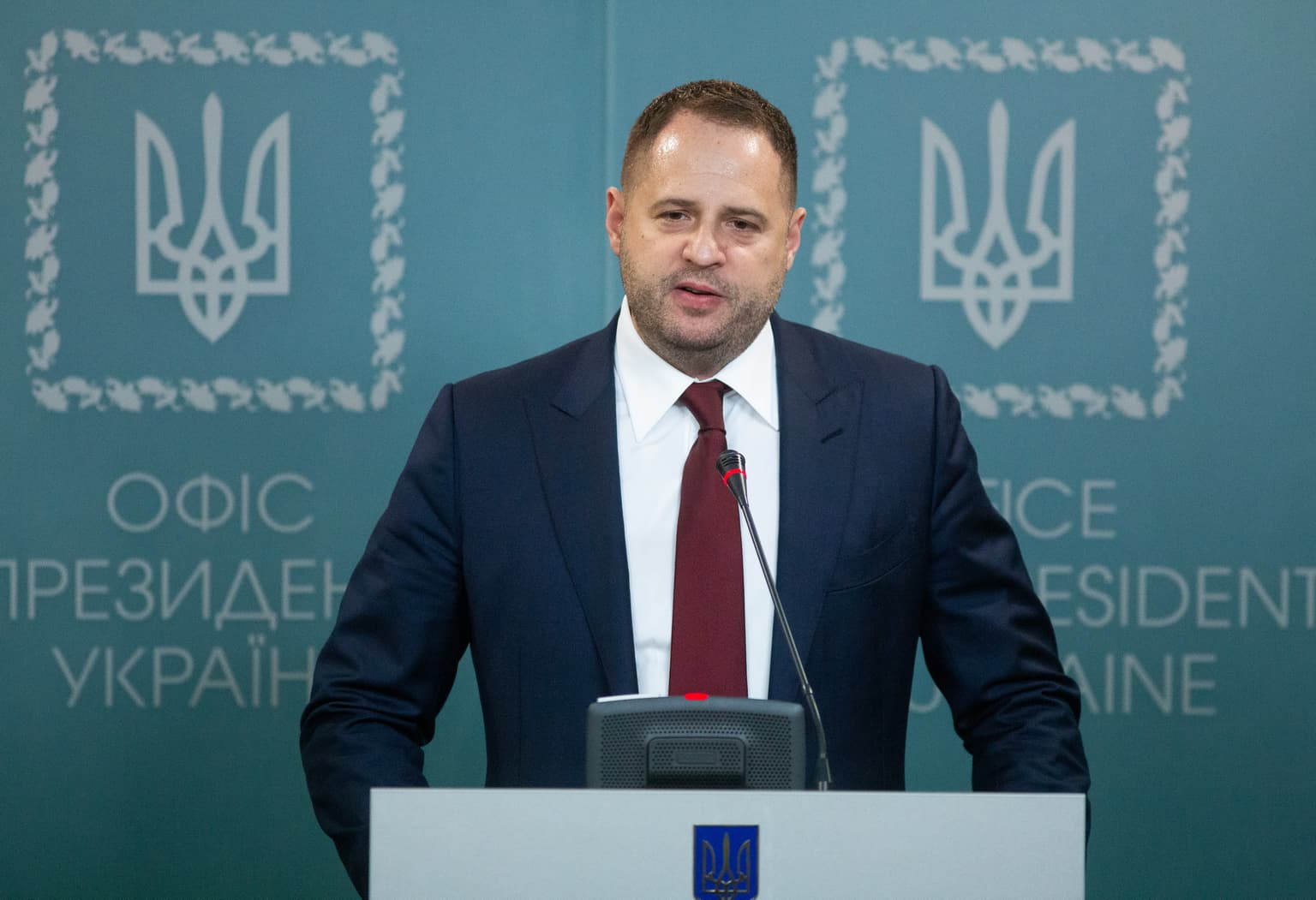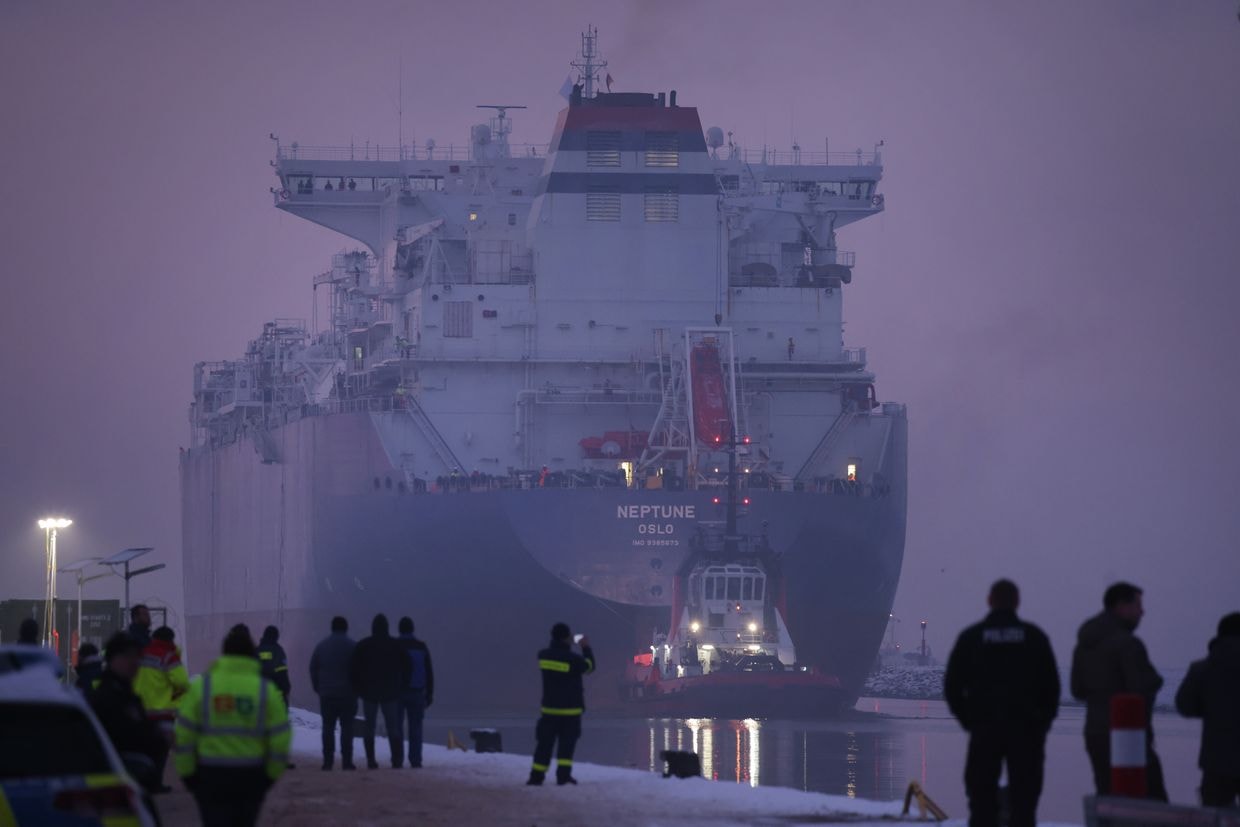Yermak: Ukraine proposes trilateral talks with US, Russia

Ukraine proposed to hold trilateral talks with the U.S. and Russia to resolve the conflict in Donbas.
Andriy Yermak, head of President Volodymyr Zelensky’s office said so to U.S. diplomat John Herbst during an Atlantic Council webinar on Jan. 14.
“We called for U.S. participation and leadership” in the peace talks, Yermak said.
According to Yermak, Zelensky proposed to U.S. President Joe Biden to organize trilateral meetings by video call between Biden, Zelensky and Russian President Vladimir Putin. "We think it can work," he said.
Ukraine is still waiting for a reaction to this proposal, he added.
“The Americans took the proposal with some interest,” he said.
The spokesman of the U.S. Embassy in Kyiv did not immediately confirm this information when messaged for comment.
The current Normandy Format of the talks aimed to bring peace to the Ukrainian Donbas invaded by Russia involves Ukraine, Russia, France and Germany. The negotiation process has been stalled, with Russia being blamed by the other three sides for delaying and failing to show up.
The Kremlin massed over 100,000 troops and the technology they need to further invade Ukraine near the country’s borders over the past few months. This week, Russian diplomats met with the U.S. and NATO, followed by a meeting of the Organization for Security and Cooperation in Europe, of which Ukraine and Russia are members.
None of the meetings led to any concrete resolutions. Afterward, Russian officials made ominous statements, saying that negotiations had hit a “dead end” and that Russia won’t wait forever for the West to address its concerns before it takes action.
Russia has demanded that Ukraine gets a lifetime ban from NATO and for alliance forces deployed in Europe to pull back to 1997 levels.
If Russia attacks, the U.S. and its allies threatened harsh sanctions, for which Yermak thanked the U.S. and other partners.
However, in a statement prompted by Herbst, Yermak said that it would be better to deploy the sanctions and increase military aid to Ukraine now rather than after the launch of a large-scale invasion.
“Please understand if it happens, it will be a big tragedy, it will be a big war,” he said. “Most citizens of Ukraine will fight against aggressors.”
Yermak said Ukraine is doing its best to work with its partners to be prepared for any number of attacks that Russia can throw. He said he is sure that Ukrainians will resist even against overwhelming forces, thanks in part to the territorial defense forces it has created.
“Our people will never give back their independence,” said Yermak. “Freedom is in our blood.”
Pressed on domestic issues such as the wisdom of pursuing treason charges against former President Petro Poroshenko, Yermak defended it as more of a case against pro-Kremlin oligarch Viktor Medvedchuk than Poroshenko.
Poroshenko was accused of being involved in supplying coal to Ukrainian state-owned enterprises from Russian-occupied areas in the Donbas in 2014-2015. Under the same case, Medvedchuk is accused of negotiating the supplies with Russia and its proxies, as well as with Poroshenko’s administration. Both Poroshenko and Medvedchuk denied wrongdoing.
Yermak sought to portray the situation as different from former the charges against former Prime Minister Yulia Tymoshenko during the tenure of former President Viktor Yanukovych, saying Zelensky stands for the rule of law. “There is no ‘right time’ for rule of law,” said Yermak.
When asked whether the "deoligarchization" law passed last year means oligarch assets accruing in state hands, Yermak denied that the state has changed rules of private property and is targeting specific people. “The first step is to break the corrupt oligarchic system where people buy policy and lawmakers and control political decisions.”
He denied that Zelensky’s administration wants to crack down on media freedom but opposes those who “use media as a weapon.”










